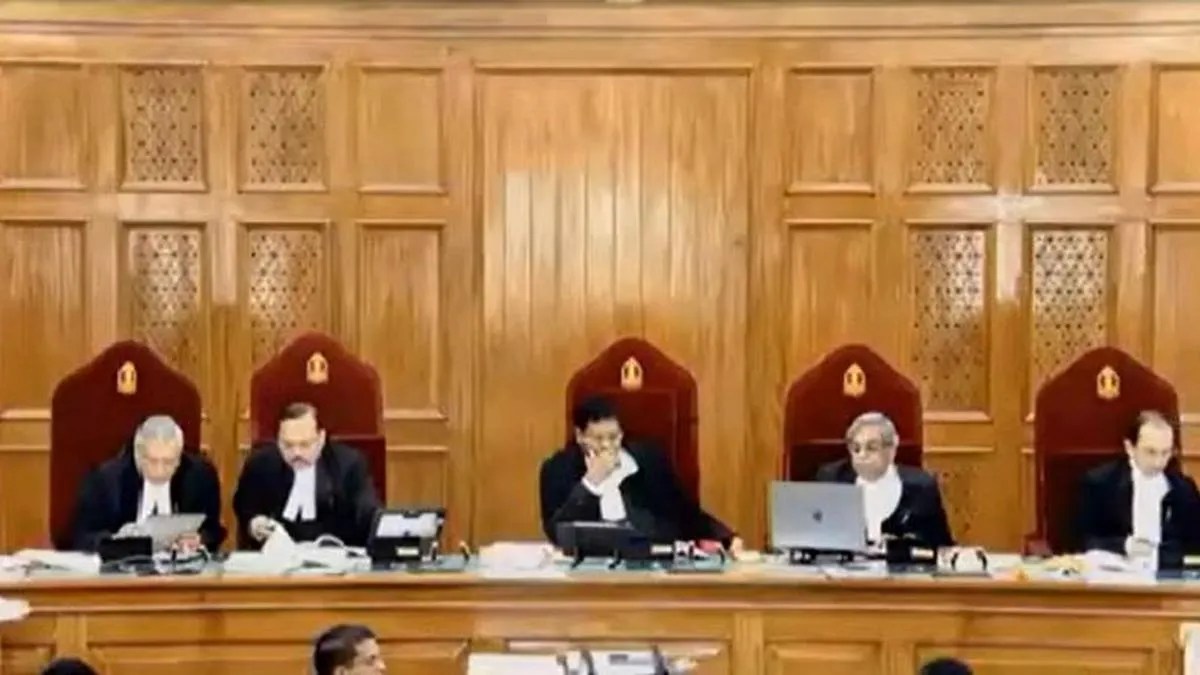New Delhi, September 3, 2025: On September 2, 2025, three judges of a five-judge Presidential Reference Bench of the Supreme Court—Chief Justice of India B.R. Gavai, Justice Vikram Nath, and Justice P.S. Narasimha—orally observed that Governors cannot indefinitely delay granting assent to Bills passed by State legislatures. The remarks were made during a hearing involving the States of Tamil Nadu and West Bengal, which raised concerns about gubernatorial delays impeding the constitutional process.
The bench emphasized that Governors, as constitutional authorities, cannot obstruct the functioning of the Constitution or delay the legislative process without justification. “No organ can impair the functioning of the Constitution,” Justice Narasimha stated. The judges underscored that Governors must act with urgency, as legislation reflects the “sovereign will” of the people and addresses the pressing needs of the time.
Tamil Nadu, represented by Senior Advocates A.M. Singhvi and P. Wilson, argued that Governors “cannot assume to be royalty in a Republic,” while West Bengal, represented by Senior Advocate Kapil Sibal, stressed the need for collaborative, not combative, functioning among constitutional offices. “When the Constitution mandates that a Governor should act with immediacy, why should he hold back Bills? Legislation is a sovereign act. It cannot wait,” Sibal argued.
Sibal further contended that allowing Governors absolute power to withhold Bills under Article 200 of the Constitution, as argued by the Centre, would lead to “absurdity” and disrupt the constitutional framework. “States cannot go in search of political solutions to coax Governors’ assent,” he said, warning that unchecked gubernatorial delays could jeopardize the “future of India.”
Background of the Presidential Reference
The hearing stems from a Presidential Reference filed in May 2025, questioning the three-month deadline imposed by a two-judge Supreme Court bench in the Tamil Nadu Governor case on April 8, 2025. The earlier ruling addressed the delay by the Tamil Nadu Governor in granting assent to 10 State Bills since 2020, mandating that Governors and the President decide on Bills within three months, failing which the Bills would be “deemed” to have received assent and become law.
The current bench expressed reservations about imposing a “general” three-month deadline for all cases. Justice Vikram Nath questioned, “What happens if the three-month limit is not followed? Why is it only ‘deemed assent’? Why not ‘deemed withholding’ or ‘deemed referral to the President’?” He also raised concerns about whether setting such timelines would require constitutional amendments, as they might overstep judicial authority.
Chief Justice Gavai noted that different Bills have varying exigencies and timelines, making a uniform deadline potentially impractical. “A broad brushstroke of a general timeline applicable to all cases may amount to judicial overreach,” he remarked. Justice Narasimha suggested that time limits could be prescribed on a case-by-case basis, considering specific circumstances.
Arguments and Counterarguments
Singhvi, representing Tamil Nadu, explained that the three-month deadline in the Tamil Nadu case was set due to the “endemic and repetitive” nature of gubernatorial delays, citing similar issues in Kerala and other states. He argued that Bills are crafted to address the “felt necessity of the times” and cannot be stalled indefinitely.
Sibal elaborated on the Governor’s role, stating, “The Governor is not a postman. He has certain discretion. If he feels a Bill requires consideration by the President, he can consult lawyers and refer it. He can also send it back to the Assembly with suggestions for amendments. But he cannot sit back and do nothing.” He emphasized that Governors, as part of the Executive, must deliver the will of the Legislature to the people through a collaborative and amicable process.
The Centre’s argument, defending the Governors’ discretion under Article 200, was met with skepticism by the bench and the states, who argued that such powers must not undermine the constitutional scheme.
The hearing continues as the bench deliberates whether to uphold, modify, or set aside the three-month deadline, with significant implications for the balance of power between Governors and State legislatures.

